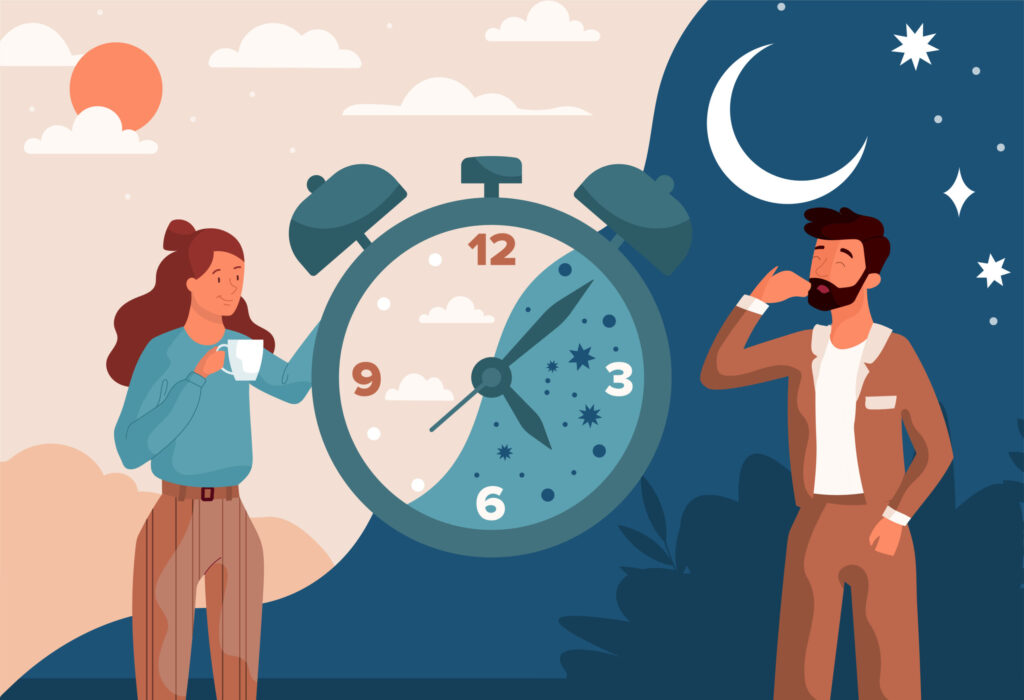
People who are generally new at meditation or do not get enough time in the morning to meditate may wonder:
- Would it be good to meditate at night?
- Can we meditate in bed at night?
- Would it give similar benefits to meditating at night as we get by meditating in the morning?
The simple answer to these queries is “no!”. This answer depends on several reasons that will be discussed in this blog in detail. Here we’ll discuss all the possible reasons for why you should not meditate at night. But before going straight into these reasons, let us discuss “What is meditation and why it is so important”?
What is Meditation?
Meditation is a technique of mindfulness or focusing in which you pay attention to the present moment, object, thought, or activity. It sharpens your mental clarity and focus. It helps you to get attention, awareness, and emotional calmness. Meditation is also a part of several religious traditions.
Why is Meditation So Important?
Meditation has been an important part of people’s daily routines for many years. The main reason for its importance is that it improves their:
- Focus/Concentration
- Sleep Quality
- Memory
- Stress management
- Overall health
It would help if you meditated in the right way and time to get the above benefits. People who do not get enough time in the morning to meditate or are misguided by someone may choose a nighttime for this. However, meditators generally suggest avoiding meditation at night or in bed.
10 Reasons Why You Should Not Meditate At Night?
It is important to meditate in the correct style and do it at a suitable time to get the desirable benefits. Meditation is aimed to allow you to enter a state of deep relaxation while increasing your focus. However, doing it late at night or after midnight is usually prohibited. The main reasons behind this are discussed here in detail:
Not an Ideal Time For The Body Clock:
Your body follows a 24-hour cycle cycle known as circadian rhythm. This cycle controls our sleep-wake cycle, hormone release, and other body functions. Two different systems regulate it:


When you try to meditate at night, the SCN may need clarification and assume it to be a wake-up time. Moreover, your body is programmed to initiate a winding down activity leading towards a resting mood. So, these factors make it difficult to sleep or get the ultimate benefits from meditation at night or bedtime.
Brain Functioning Reduces at Night:
Another major reason to avoid meditation at night is that your brain does not function as sharply as in the morning. Our cognitive abilities start declining, making it difficult to stay focused and alert. Also, your body temperature drops after midnight, making it harder to focus during meditation. It may also urge you to get to sleep much more quickly.
Drifting Off into Sleep Increases:
During the meditation session, you need to stay focused and aware. It demands a certain level of alertness and attention. However, if you meditate at night, it triggers you to fall asleep more quickly than usual. If you are getting unconscious sleep instead of mindfulness awareness, you are not getting the benefits of meditation. Moreover, if you meditate while lying down in your bed, it is tough for you to stay awake.
The In-Between State of Consciousness:
Meditation at night can lead you to an in-between state of consciousness. During this state, you are neither fully awake nor fully asleep. The reason is that meditation at night can disturb or blur the boundary or line between the state of meditation and sleeping. This in-between state neither provides the healthy benefits of sleeping nor gives the mindfulness benefits of meditation.


Low Energy Levels at Night:
For a perfect Meditation session, we need to stay focused, and for this, we need a certain level of energy. These energy levels include:
- Mental energy
- Emotional energy
- Physical energy
The energy levels in our body are usually the lowest at night due to the daily work routines or responsibilities. So, when you try to meditate with these low energy levels, you cannot get the benefits of meditation.
It May Cause or Increase Anxiety:
Instead of sharpening the mind or increasing focus, meditating at night can cause anxiety or enhance anxiety levels for people already dealing with it. Beginners usually face the opposite effect of meditation. Normally, meditation makes your body and mind more alert and aware. Your mind becomes more active, and the body becomes unable to relax. So, meditation at night makes it harder to fall asleep, which leads to anxiety. You must avoid meditation at night if someone is already struggling with it. The best way to reduce your anxiety is to meditate in the morning, which helps you to stay focused and more relaxed.
It can lead to Nightmares or Sleep Disorders:
Meditation generally aims to get good sleep and mental relaxation and reduce stress. However, it can produce the opposite results when you do it at night. It can lead you to nightmares and different sleep disorders. As discussed earlier, night meditation can disturb the body’s natural circadian rhythm. It further disturbs your sleep patterns and produces sleep disorders. It has also been observed that people who meditate at night also have nightmares. During meditation, your mind is more focused and open, but it can lead to nightmares if you are not careful. Meditation at the right time helps you sleep well and avoid nightmares or sleep disorders.
It Can Cause Physical Discomfort:
Meditation enhances your focus and attention but can cause physical discomfort if you do it at night. Beginners usually face this effect since their bodies become tense if they meditate at night. The most commonly observed physical discomfort may include:
- Muscle tension
- Headache
- Neck and shoulder pain
During meditation at night, your body releases hormones that can make it difficult for you to sleep at regular patterns. A disturbed sleep cycle leads to insomnia, negatively affecting your overall health. Another commonly observed effect on our body is the sudden increase in body temperature.
Increases Heart Rate if Done Incorrectly:
Meditating at the proper time can be productive as it makes you more attentive and aware. However, meditation at night can increase your heart rate if done incorrectly. Meditation demands a relaxed state of your body, which slows down your heart rate. But if you do it unconsciously, you can overstimulate your body. This unusual effect can enhance your heart rate. The other factors that are related to this increased heart rate include:
- Bright lights
- Irregular breathing
- Loud noise
- Wrong meditating position
An increase in heart rate may be an initiative towards cardiovascular issues. You need to avoid all of the above causes and try to refocus.
You May Wake Up Feeling Confused and Less Refreshed:
Some people suppose that waking up after a late-night meditation session could refresh them. But this late-night meditation could make you feel more tired. You will feel less refreshed in the morning. It can make you feel confused and stressed. Moreover, reducing your regular sleeping hours can make you less productive.
Can You Meditate in Bed at Night?
As discussed earlier, meditation at night is prohibited because of its potential disadvantages. Meditating in bed is similarly not a good option for you. The correct position for meditation is as important as the correct time. Meditating while lying in your bed can be a bad practice for you. It disturbs the quality of sleep or can make the quality worse.
Final Thoughts:
Although meditation is important to improve your mental well-being, choosing the right time is also important to get the desired benefits. Most meditators suggest avoiding nighttime meditation and prefer a morning for this practice. In conclusion, avoiding meditating at night or in bed is highly recommended as it decreases your quality of sleep and health problems. Remember the key points to help you choose the right time to meditate and avoid to meditate at night.
FAQs: 10 Reasons Why You Should Not Meditate At Night
1.Is it advisable to meditate at night?
Answer: While meditation is generally beneficial, meditating at night may not be suitable for everyone. The body’s natural rhythms and the environment can impact the effectiveness of meditation, potentially leading to undesirable outcomes. It’s essential to consider individual circumstances and preferences before deciding on a meditation schedule.
2.How does meditating at night affect sleep patterns?
Answer: Meditating close to bedtime may stimulate the mind, making it challenging to unwind and fall asleep. The relaxation induced by meditation may counteract this effect for some individuals, promoting better sleep. However, others may find it disrupts their sleep patterns, leading to insomnia or restless nights.
3.Does meditating at night affect the quality of sleep?
Answer: Research suggests that meditating before bedtime can impact sleep quality differently for each person. While some may experience deeper and more restorative sleep, others may find it disturbs their sleep cycles, resulting in fragmented or shallow sleep. Factors such as meditation technique, duration, and individual sensitivity play a role in determining its effects on sleep quality.
4.Can meditating at night increase the risk of sleep disturbances?
Answer: Meditating at night can potentially increase the risk of sleep disturbances, particularly if the practice energizes rather than relaxes the practitioner. Stimulating meditation techniques or prolonged sessions close to bedtime may disrupt the body’s readiness for sleep, leading to difficulties in falling asleep or maintaining restful sleep throughout the night.
5.Are there specific meditation techniques that are more suitable for nighttime practice?
Answer: Gentle, calming meditation techniques such as mindfulness meditation or progressive muscle relaxation may be more suitable for nighttime practice. These techniques promote relaxation and tranquility, helping to ease the mind and body into a restful state conducive to sleep. Avoiding stimulating or invigorating practices before bedtime can minimize the risk of sleep disturbances.
6.How does meditating at night affect cognitive function and alertness the next day?
Answer: Meditating at night can influence cognitive function and alertness the following day, depending on individual responses and the quality of sleep obtained. While some individuals may experience improved focus, clarity, and energy levels, others may feel groggy or fatigued due to disrupted sleep patterns. Consistency, moderation, and personal experimentation can help determine the optimal timing and duration of nighttime meditation for maintaining cognitive function and alertness.
7.Does nighttime meditation impact mood and emotional well-being?
Answer: Nighttime meditation can influence mood and emotional well-being in various ways. For some individuals, it may promote relaxation, stress reduction, and emotional balance, enhancing overall well-being. However, others may find it exacerbates feelings of restlessness, anxiety, or emotional agitation, particularly if it interferes with sleep quality or exacerbates existing mental health issues.
8.Can meditating at night affect hormone regulation and physiological processes?
Answer: Meditating at night can potentially influence hormone regulation and physiological processes involved in sleep-wake cycles, stress response, and overall health. Research suggests that relaxation practices such as meditation may modulate cortisol levels, promote parasympathetic nervous system activity, and support physiological restorative processes. However, individual responses may vary, and factors such as meditation duration, intensity, and timing can impact its effects on hormone regulation and physiological function.
9.Are there any safety concerns associated with meditating at night?
Answer: While meditation is generally considered safe for most individuals, there are potential safety concerns associated with practicing at night, particularly if it interferes with sleep or exacerbates underlying health conditions. Prolonged or intense meditation sessions close to bedtime may increase the risk of sleep disturbances, fatigue, or exacerbation of mental health symptoms. It’s essential to listen to your body, prioritize sleep hygiene, and adjust your meditation practice accordingly to minimize any potential risks.
10.How can individuals determine if nighttime meditation is suitable for them?
Answer: Determining the suitability of nighttime meditation requires self-awareness, experimentation, and consideration of individual preferences and circumstances. Paying attention to how meditation impacts sleep quality, cognitive function, mood, and overall well-being can provide valuable insights. It’s essential to maintain open communication with healthcare providers, monitor any changes in sleep patterns or mental health symptoms, and adjust your meditation practice as needed to support your overall health and well-being.

